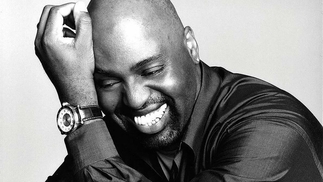Defected is the great success story of UK dance music
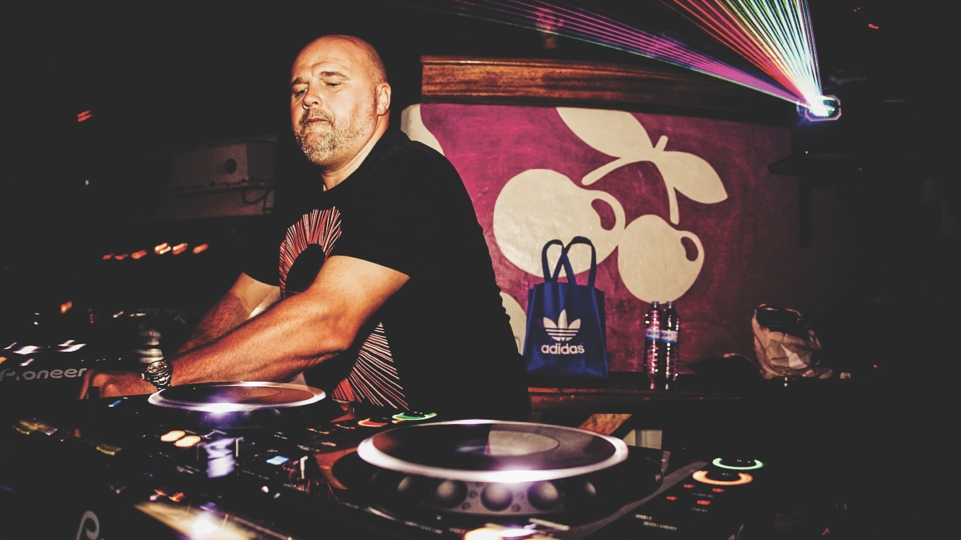
For 20 years, Simon Dunmore's Defected has been dedicated to the finest in house music, from its label and numerous associated imprints, to its events and festivals. Still, it hasn’t all been plain sailing — Defected has traversed choppy waters to become the super-brand it is today. DJ Mag talks to Dunmore about his house history, adaptability and his approach to business...
“I’m a collector of labels. My ambition was for people to have a Defected rack in their collections in the same way they'd have a Salsoul rack, a Prelude rack, a Strictly rack, a Philly International rack,” says Simon Dunmore. After a decade working in club promotions and A&R for the majors, he founded Defected Records on 1st January, 1999. The plan was to establish the UK’s answer to Mark Finkelstein and Gladys Pizarro’s legendary New York imprint Strictly Rhythm. You could say that he has achieved that.
Thanks to Dunmore’s keen A&R savvy, which has over the years secured releases and forged enduring friendships with Masters At Work, Bob Sinclar, Dennis Ferrer, Roger Sanchez, Kevin Saunderson and Todd Terry, Defected has made an indelible imprint on British dance music. ‘To Be In Love’; ‘At Night’; ‘Finally’; ‘Another Chance’: all tracks knowable by name alone. To call it the most influential UK house label of all-time would be entirely acceptable.
There have been bumps in the road. Fortunes made, lost, and made again. But after 20 years and well over 500 releases (that’s on Defected alone, never mind its numerous spin-off imprints), it’s in better health perhaps than it’s ever been. CamelPhat & Elderbrook’s dominating anthem ‘Cola’, for example, was studiously picked up by Defected MD Wez Saunders after dozens of other labels had either ignored it, or turned it down. It was nominated for a Grammy and an Ivor Novello award, as well as topping the Billboard chart and grabbing near-ubiquitous radio and club play around the world. It’s sold two million copies worldwide. Defected, in short, has very much still got it.

EXPERIENCE
Had things worked out differently, Dunmore was all set to be a dry cleaner. Buying records was a hobby. But as he amassed a vinyl collection, so he’d start to get booked for gigs at parties and wine bars around where he grew up in West London. House music arrived gradually. “It was records like Russ Brown’s ‘Gotta Find A Way’ or Steve ‘Silk’ Hurley’s ‘Jack Your Body’, or Farley ‘Jackmaster’ Funk’s ‘Love Can't Turn Around’,” he says. “Before I was even really aware there was a house scene going on in Chicago, these records were coming in on import. They’d be getting played by the people behind the counter in the record shops. Then after a while, you realised you had 15, then 20, then 30, then 100 records that started to sound alike, and that would work together in a set.”
Soon, he found he could make a living out of DJing, and so his dreams of spending his days up to the elbows in dry cleaning chemicals were duly abandoned. He eventually got a different day job too, at the Record And Disco Centre in Rayners Lane. It was there that he began rubbing shoulders with London’s A&R community, and in 1989, he was offered a job doing club promotions at Cooltempo, where he worked with Arrested Development, Adeva, Gang Starr and Kenny Thomas. Soon moving into the A&R department, he signed huge club hits from Juliet Roberts and River Ocean, his first professional encounter with Luis Ferdinand Vega Jr, aka 'Little Louie' Vega of Masters At Work. Dunmore remembers exactly where he first heard those wild congas of the pivotal ‘Love & Happiness’.
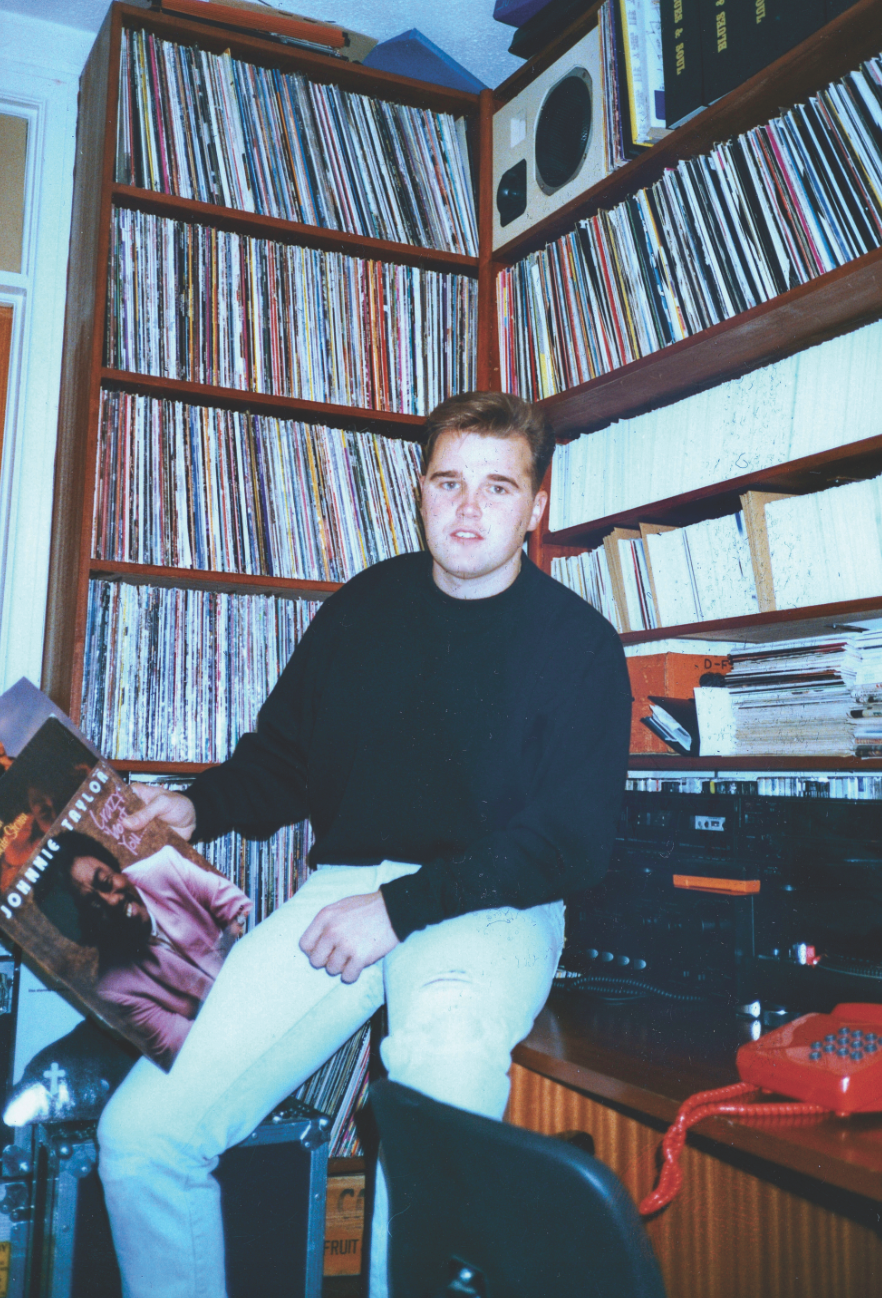
“Louie was playing at a warehouse in Tottenham,” he says. “It was a filthy night, the middle of winter, pouring with rain, horrendous, and I wasn’t going to go, but my mate persuaded me. And Louie came on to the beats of that record. The place was absolutely jumping. Even if it was just the congas, I thought it was an incredible record. After four minutes, India’s vocals come in. We all knew it was her singing, but had no clue what the record was. You couldn’t get to the DJ booth, so on the Monday, I phoned him up. He told me it was this new record, and he’d just signed it to Strictly. I’d already signed Aly-Us’s ‘Follow Me’ to Cooltempo from Strictly, so by that time I had a good relationship with them. I phoned up Gladys, and told her I had to sign it. You can still play it now and get a great reaction. People go on about records being spiritual — that is absolutely a spiritual record.”
From Cooltempo, Dunmore moved to A&M Records’ dance imprint AM:PM in 1994, as its head of A&R, from where he released massive club tracks such as Alcatraz’s ‘Giv Me Luv’, Love Tribe’s ‘Stand Up’ and Farley & Heller's ‘Ultra Flava’, alongside chart hits including Mousse T’s ‘Horny’ and Ultra Nate’s ‘Free’ (both tracks hit No.2 in the charts), as well as commissioning club remixes for umbrella label Polygram’s big hitters like Janet Jackson and The Police. “We had that balance of commercial success, that would then allow me to indulge myself and sign records that were more true to my heart,” he says. “And that's not to say that I didn’t like ‘Free’, or ‘Horny’. They brought success and balance to the label.”
PUSHING ON
The time came to move on. He was offered funding to start a label by Ministry Of Sound, and so Defected was born, launched with Janet Bell, his former promotions partner at A&M. “It was about giving myself a chance to be in control of my own future,” he says. But although he had a Rolodex full of DJs and producers who could make records for him, things started tentatively.
“I had really good relationships with a lot of people,” Dunmore says, “but then initially, when I left A&M where we had big budgets, and could afford to pay reasonable advances and fees for remixes, as an independent, suddenly you don’t have access to that kind of finance. I quickly found out who my friends were. With some people, the phone just didn’t get picked up.” Defected’s first single was ‘Can’t Get Enough’ by Soulsearcher, built around a sample from ‘Let’s Lovedance Tonight’ by Gary’s Gang, with the hook sung by Snap! singer Thea Austin. It got radio play straight away, and went into the Top 10. Without him having time for me, I don’t believe Defected would be here now. He impressed on me how important it was to own our music.”
Massive tracks like Masters At Work’s ‘To Be In Love’ and Paul Johnson’s ‘Get Get Down’ dropped in Defected’s first year, then Bob Sinclar’s ‘I Feel For You’ and Kings Of Tomorrow’s stunning ‘Finally’, with Julie McKnight. The label scooped its first No.1 single in 2001, Roger Sanchez’s Toto-sampling record ‘Another Chance’. “Roger is someone I’ve known since Cooltempo,” Dunmore says. “He’d originally signed his album to Sony, but they didn’t know how to promote it. So his manager approached me, and asked me for help. He said, ‘Sony don’t understand it’. I said, ‘I’ll help, but we need to release it’. I heard the album, and there were several good tracks, but it was missing that killer cut. He went back into the studio, and the very last track he sent over was ‘Another Chance’. Of course, it was the record that drove everything.”
At No.1, it kept Robbie Williams’ ‘Eternity’ off the top spot. “That was a pretty big deal at the time,” he laughs. “Having a No.1 with a major, you’re just doing your job. It’s something that most people are proud of, but to do it as an independent, without the clout, the infrastructure, the staffing that a major label has, to be holding our own against the majors was something that I was massively proud of.” Things were going amazingly well for the plucky independent — until they weren’t.
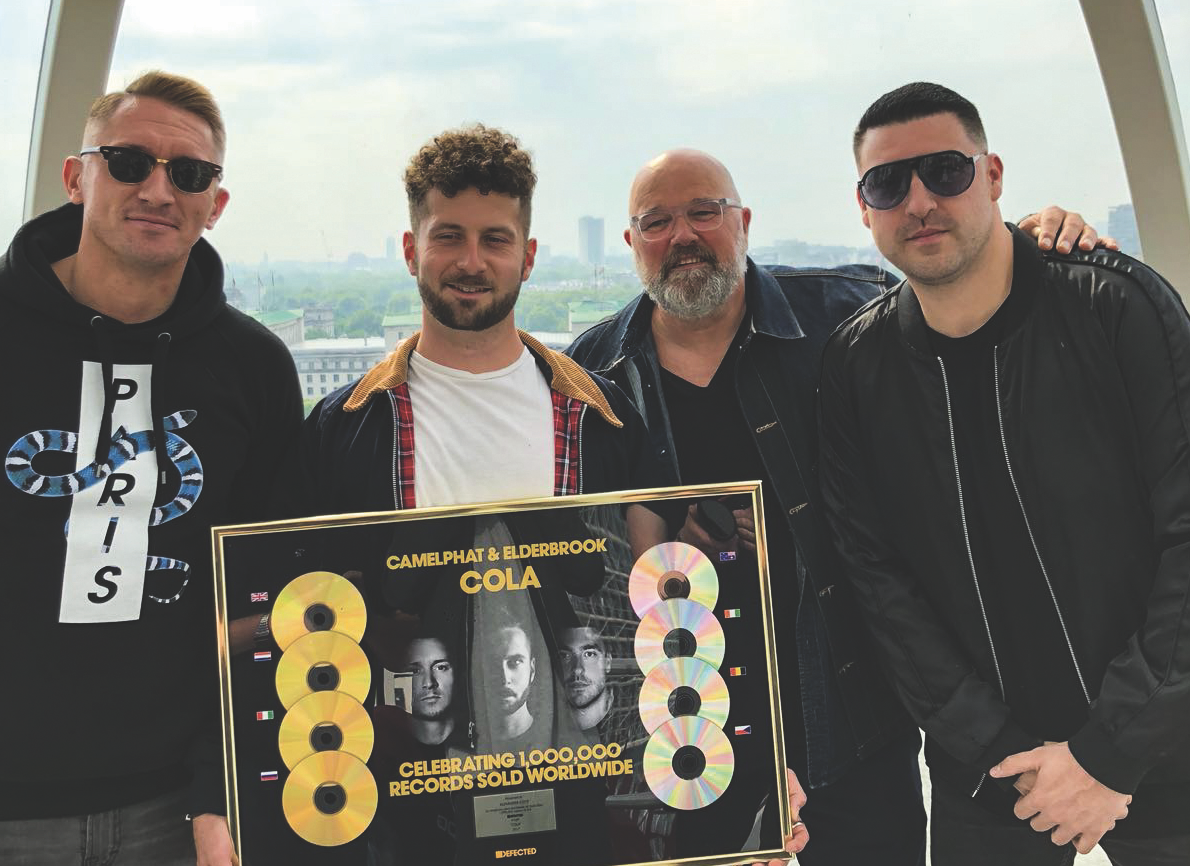
“We were never a cash-rich business,” says Dunmore. “So we always had to manage our finances very stringently. Around 2004, we noticed a decline in income over a couple of months. When it happens for one month, you think, ‘OK, maybe it’s just a blip’. Two months, you feel like it’s something you need to be aware of, then three months, alarm bells start ringing. We knew about file-sharing. We knew DJs were now able to play our records without buying them, and people were definitely raising their concerns. Then distribution companies started to go out of business. And they would go out of business owing people money. We traded with other labels, licensed tracks to other labels, then they’d go out of business, owing us money. We were getting hit in the head from every angle. Then, ultimately, high street retailers started to go out of business.
“We had to adjust. We cut costs quickly. We cut overheads, staff, we had to make people redundant, which is tough when you work with people so closely. Some understood, some found it difficult to come to terms with. I spoke to a lot of people around that time, and they all said, ‘We just didn’t act quickly enough’. We were probably pretty close to going out of business. But sometimes you just need that little bit of luck. And then we signed Bob Sinclar’s ‘Love Generation’, quickly followed by ‘World Hold On’, which were both Top 10 records in the UK. At a time when everyone was struggling, that gave us just enough breathing space financially to ride it out. If it wasn’t for Bob Sinclar, Defected may not be in business anymore, and that’s the truth.”
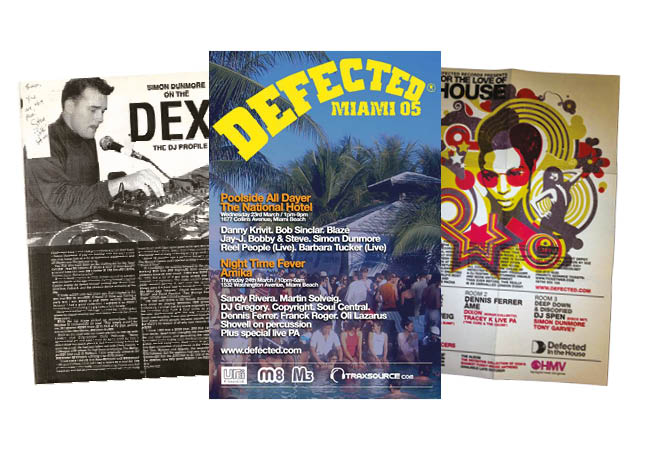
ADJUSTING
By being more agile, by changing their business model and adapting, they survived the storm, being left in a marketplace with fewer competitors. They ran the business as efficiently as they could, and embraced using online and social media in their marketing strategy very early on, in order to reach a global audience. “We realised we could promote our music worldwide, and it could be there 24-7, 365. You paste up a poster in the city, it’s been pasted over the next day,” he says. “We were early adopters in digital marketing and social media. We walked away from traditional marketing during that time very quickly. One, it was expensive; two, it had become ineffective.”
Grasping these new, direct channels of communication to their audience pulled Defected out of trouble, when so many other labels went to the wall in the mid-2000s. It helped that the big records kept coming, of course. Fish Go Deep’s crossover smash ‘The Cure And The Cause’, ‘Look Right Through’ from Metro Area’s Morgan Geist, released under his Storm Queen alias (one of Dunmore’s personal favourites), and Âme's massive ‘Rej’; all of these were huge hits. The woozy Solomun mix of Noir & Haze’s ‘Around’ represented how the new model of streaming had been seized upon by Defected. “It was a hit in the modern music industry, which isn’t always about radio play and sales,” he says. It has 82 million views on YouTube.
Dunmore also forged ties with New York’s Dennis Ferrer and his Objektivity label, releasing tracks such as ‘Hey Hey’ and ‘Hit It Off’. “I can say that we’ve worked with Masters At Work, Roger Sanchez and Todd Terry for 25 years, and Dennis Ferrer for 15 years. These people are no fools. If you didn’t treat them well, they wouldn’t be happy to still be working with us. Reputations like that get around. It has always encouraged us to run our business properly.” As such, big hitters like Todd Terry, Joey Negro, Claptone, Dimitri From Paris and Masters At Work are never far from the label’s Glitterbox events, wherever they may be, from London to Ibiza, or at Defected’s own summer festival in Croatia.
As it’s thrived in a tough marketplace, Defected has gone on to absorb a host of other key house labels, including Azuli, 4th Floor, Soulfuric and Slip 'N Slide, as well as creating diffusion imprint DFTD. Then, when its mentor label Strictly Rhythm folded in 2002, following a failed joint venture with Warner Music, Dunmore stepped in to help re-launch it in 2006. It also took in Derrick Carter and Luke Solomon’s revered imprint Classic in 2010, with Dunmore bringing Solomon into the fold both to run Classic and as an A&R man for the Defected labels.

We acquired it from the administrator when it went out of business, but Classic is not my label, it’s Luke Solomon’s, so it would not sit well with me working a label like that without the person whose vision it was working alongside me. So when I acquired it, I rang up Luke and said, ‘I've obtained the rights to your label, but it’s not my label, it’s yours. Will you come and work for me?’ Now he’s an invaluable member of the team. He’s an amazing A&R man. Artists love him, and people want to work with him.”
As well as knowing what makes a hit, Dunmore is known for being an uncompromising character when it comes to business. “I’ve upset people over the years. I’ve no doubt about it,” he admits. “It’s because to get on in life, at some point you have to tell the truth. And I learnt that you have to tell the truth pretty quickly, because if you don’t, ultimately, you have to tell it further down the line, and it only becomes more difficult. I try to be fair and honest with people, but some just don’t really appreciate it.
“It’s like this,” he continues. “So you have a DJ who’s played amazingly well for you. I’ll make a point of saying, ‘You absolutely smashed it tonight, thank you’. The same DJ can play again, and not play so well. I’ll say to that DJ, ‘Sorry, it didn’t work tonight. You didn’t bring your A-game’. When you’re paying someone £15,000 or £20,000 to DJ, you expect them to bring their A-game. Some people can live with that, and your relationship is strong enough to have those kinds of conversations, but some people don’t want to hear it. Having been in the industry for 30 years, and having invested my life into it, if someone doesn’t deliver, I should be able to have an opinion on that. Because if someone doesn’t perform well, and doesn’t on a regular basis, you’re not going to book them again. So if you tell them early, that situation can be turned around, and you can carry on with your relationship. So I would hope that people would say I have integrity, and that I’m firm, but fair. That’s what I would hope they would say. But I’ve no clue if that’s what they say or not.”
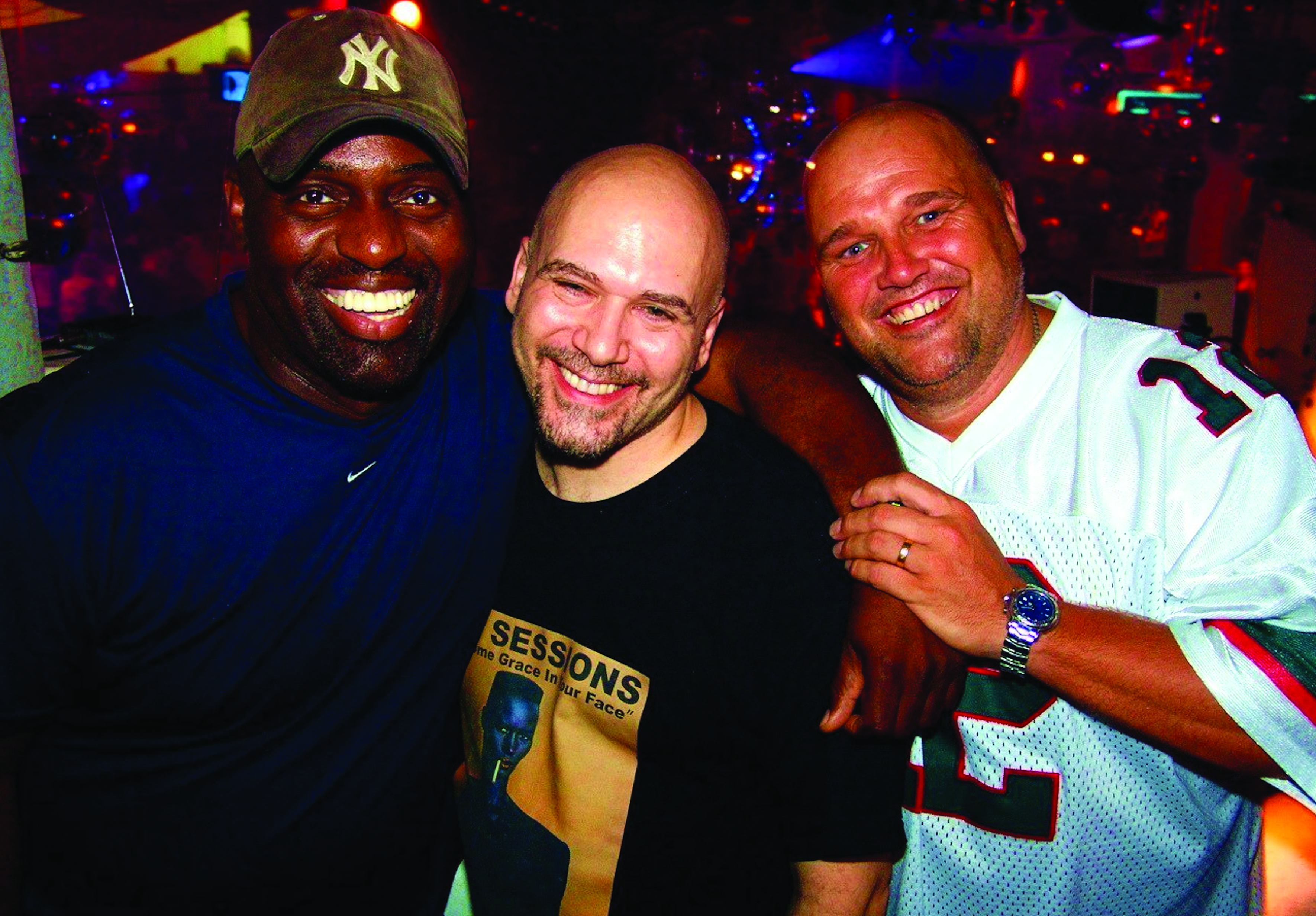
FAMILY
With hits such as ‘Cola’ proving the label is as relevant as ever, it speaks to a bright future for Defected, having grasped the music industry’s new model, and continuing to adapt and run with it. “The future of what we do is our community,” says Dunmore. “For that to continue, we have to keep our bar set really high. We have to keep signing great records, and associate with artists who people aspire to, and we have to put on great events. The competition is always just behind you. If we let our standards slip, you lose people and they don’t return.
So that’s an incentive for us to keep things at a real level of quality. And I’m very proud of the fact that I go clubbing with two of my kids now, and they conduct themselves in a really great way. I left Glitterbox this Saturday gone at 4.30am, and said, ‘You need to come home with me now’, and they’re like, ‘No Dad, we’re staying to the end’. They got an Uber back.” A quick scan of Defected’s Facebook page, and you’ll find a video of a proud-as-punch Dunmore behind the decks with his other 14-year-old son. The lad is hunched over the CDJs poised to drop Sonny Fodera’s edit of Section Boyz ‘Lock Arff’ at a Defected boat party in Croatia. Wearing matching Defected T-shirts, he looks a tad nervous, but then pretty buzzed when the crowd go nuts. Plus, he’s not at all embarrassed when his dad gives him a big hug. Who knows, maybe that’s the future of Defected right there?
“In my personal life, I have a great family, and I feel that the producers I work with, they’re my extended family, as are my staff, and that also extends to the people who come to our events,” says Dunmore. “I see the same faces in London, in Croatia, in Ibiza. And that’s something that I’m enormously proud of.”
Pics: CHARLES TURNER
